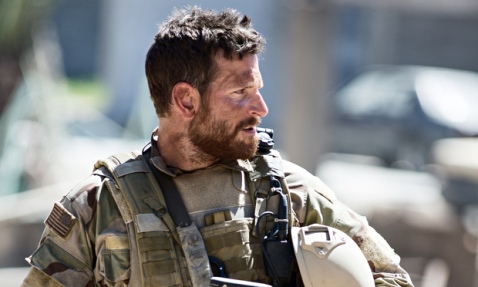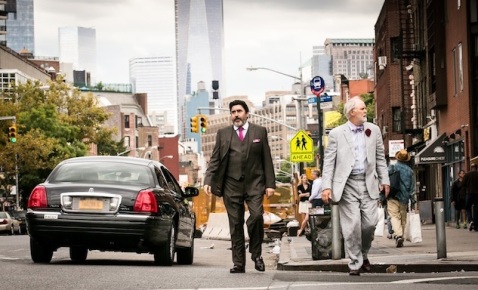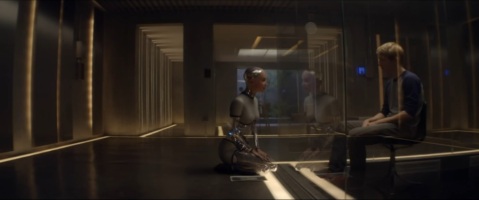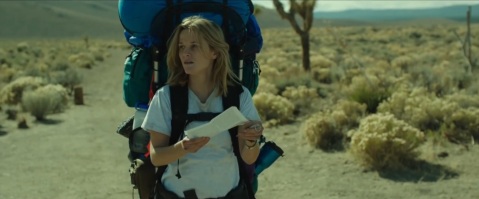Review: Love is Strange
Released: 13th February
Certificate: 15
Director: Ira Sachs
Screenwriters: Ira Sachs, Mauricio Zacharias
Cast: John Lithgow, Alfred Molina, Darren Burroughs, Marisa Tomei, Charlie Tahan, Eric Tabach.
Ben (John Lithgow) and George (Alfred Molina) are finally tying the knot after nearly forty years together. When George loses his job as a music teacher at a Catholic school as a direct result of this decision, the sudden loss of income forces them out of their apartment and places them at the mercy of their friends, family and the capricious New York housing market.
Ira Sachs mines a rich vein of social realism to assemble this poignant tale which illustrates with a quiet dignity the devastating consequences of prejudice. Ben and George find themselves separated by necessity: Ben occupies the lower bunk of his great-nephew’s (Charlie Tahan) bed, while George moves onto the couch of a much younger friend. Neither of these new placements is ideal, and friction quickly develops as Ben and George struggle to adjust after enjoying only each other’s company for so long. The drama is perfectly balanced, avoiding the temptation to invoke interest through histrionics, instead illustrating the myriad tensions which arise from existing in close confines with people with whom, given the choice, you would have not chosen to live. As Ben says, “you [end up knowing] more about them than you care to.”
Sachs and Zacharias have a gift for economical dialogue which, when combined with the nuanced performances of the cast, imbue the story with a seemingly effortless verisimilitude. Lithgow and Molina both shine in the principal roles, Lithgow beautifully creating a character who is ever so slightly out of his time and fretful, but who shows untold resilience in the face of a situation which threatens to get the better of the outwardly more sanguine George. The supporting cast, particularly Darren Burroughs and Marisa Tomei as Ben’s nephew and niece-in-law whose marriage does not need the presence of a long-term house guest, fill out the ensemble perfectly.
As is often the case with understated naturalistic dramas, some may feel that Love is Strange is a little too incidental, and the occasionally elevator music-esque score at times can reinforce the film’s slightness. Personally, I was spellbound, but I can’t deny that it’s more focused on the minutiae of human interaction than on plot. One wonders if the filmmakers’ fear of this criticism motivated them to include an ending which feels manipulative and out of step with the film’s overall tone. Added to this a slightly unclear timescale in the final act ultimately robs the denouement of the satisfaction promised by the strong first hour. This is unfortunate in a film which otherwise addresses important political and personal situations with gravity, wit and charm.
Verdict: 3/5
Image credit: loveisstrangemovie.tumblr.com
Review: Ex Machina
Released: 21st January
Certificate: 15
Director: Alex Garland
Screenwriter: Alex Garland
Cast: Alicia Vikander, Domhnall Gleeson, Oscar Isaac, Sonoya Mizuno
Caleb (Gleeson), a coder at multinational search engine Bluebook (a Google by any other name) wins an employee lottery which sends him to the house of reclusive CEO Nathan (Isaac). His prize? A week of one-on-one audiences with the newly built Artificial Intelligence Ava (Vikander), in order to determine whether she passes the Turing Test.
With this simple premise, Ex Machina offers something which (to paraphrase Mark Kermode) is a feature of all the best sci-fi: an interesting speculative idea which is neatly and thoroughly explored. Indeed, one of the most interesting elements of the film is that its central question – what constitutes personhood- is not only explored but elegantly deconstructed. Through the lens of Caleb’s interactions with Ava, Nathan and the mysterious Kyoko (Sonoya Mizuno), the audience is forced to take a good long look at their own assumptions about how intelligence, humanity and consciousness are defined. Progress, power, identity and autonomy are all unflinchingly examined in an elegant, thrilling and at times unsettling 108 minutes.
The setting, dialogue and performances complement the themes perfectly. Garland’s tight directorial style enhances the claustrophobic feel of Nathan’s futuristic domain, and the close and unfussy camerawork invites the audience to scrutinise each of the key players as we try to get to grips with their shifting motivations. Garland revels in perpetually overturning paradigms, and the casts’ performances play perfectly into this. Gleeson proves once again his skill at adding depth and uncomfortably identifiable flaws to ‘everyman’ characters, while Isaac’s Nathan is a nuanced portrayal of the internal disharmony caused by the relentless pursuit of progress and power in an isolated situation. Vikander ably grapples with a toughest role, creating a presence which is both newborn (the birdlike twitches of her head pair perfectly with the digitally inserted whirring of internal machinery) and complex, beguiling and uncanny by turns. The house, too, is a co-conspirator, with its subterranean bunker rooms and intermittent lockdowns. In an intriguing touch, the set up of Ava’s rooms mean that during Caleb’s visits he sits surrounded on three sides by glass, while Ava roams around him, re-enforcing the idea that Caleb is in some ways as much a specimen as she.
At times a tough watch, and more than earning its 15 certificate in the third act, Ex Machina is determined to dig its fingernails under the surface of what qualifies an entity for personhood. The potentially problematic format of having two male observers surveilling an apparently female AI is directly addressed in a thorough manner, however there are some sequences that don’t quite manage to pull of the difficult trick of commenting on a societal problem without perpetuating it (forgive the obtuse explanation, I’m attempting to avoid spoilers wherever possible). However, the rigour and self-awareness with which the ideas proposed are examined in the second and third acts, and the bold and uncompromising ending add up to extremely satisfying dramatic fare.
Verdict: 5/5
Image credit: exmachinamovie.co.uk
Review: Wild
Released: 16th January 2015
Certificate: 15
Director: Jean-Marc Valée
Screenwriter: Nick Hornby, Cheryl Strayed
Cast: Reese Witherspoon, Laura Dern, Thomas Sadowski, Keene McRae, Gaby Hoffman
In early 1995, Cheryl Strayed set off alone on a 1,100 mile hike along the Pacific Crest Trail, which winds its way through California, Oregon and Washington. Adapted from Strayed’s own account of her journey, Wild sees Strayed (Reese Witherspoon) navigating not just the truculent terrain of the PCT, but the messy trail of her recent past, which unravelled after the death of her mother (Laura Dern).
The way that these twin journeys (one of the mind and one of the body) intersect and intertwine forms a strong thread throughout Wild. Each challenge in the formidable American wilderness has its looking-glass twin in Strayed’s reminisces, and her attitudes to the events on the trail are given context by the gradual reveal of the events in her life. Witherspoon delivers an assured performance in an unusually physical and complex role. She perfectly captures Strayed’s anger, vulnerability and growing resolve, and is unflinching under Valée’s frank camerawork. Strayed’s disintegrating pre-trail life is a downward spiral of promiscuous infidelity and drug abuse as she seeks to punish herself sufficiently for failing to live up to the example set by her mother, however despite the explicit content of certain scenes, they never feel gratuitous or voyeuristic, and are clearly intended to illustrate, rather than titillate. This is laudable and ensures the focus remains squarely on Strayed’s emotional journey. Nick Hornby’s script, despite falling into the inspirational story trap of being a little heavy on cod philosophy, generally works well. The conversations between Strayed and her mother in flashback are particularly poignant, and the walking to redemption theme is surprisingly moving. The esoteric touches of the mysterious fox and of Strayed’s mother appearing, spectre-like, at the scenes of her recalled misdeeds, are also effective. Although the film is played perhaps a little too conventionally to be truly extraordinary, there is nevertheless much to admire about it, and indeed much to enjoy.
Verdict: 3/5
Image credit: foxsearchlight.com/wild
Kingsman : The Secret Service Review
Tinker Tailor Soldier Boy
Released : January 29th 2015
Certificate : 15
Director : Matthew Vaughn
Cast : Colin Firth, Samuel L. Jackson, Taron Egerton, Michael Caine, Mark Strong, Sophie Cookson, Sofia Boutella
Plot : Eggsy (Egerton)is a young lad from the streets of London who is slightly off the rails, but is offered a chance of a better life when he meets Harry Hart (Firth), a secret agent, who offers him a chance to become a Kingsman spy. As Eggsy trains the Kingsman meet their greatest challenge yet, as billionaire Richard Valentine (Jackson) plots a plan to cause mass genocide.

Matthew Vaughn sets about he second mockery of a large motion picture genre, setting his sightson the spy genre. A genre which is just as easily laughable as the superhero genre, especially in films. But due to Kick-Ass huge susses, which can be demonstrated by its spawn of a disappointing sequel, there was always anticipation for another comedy from Vaughn, and to make it another spoof would be even better. And he as returned, after returning to the X-men saga for a very seriousperformance, producing in one of the best outings from the saga. With Kingsman, we can be pleased that a Brit is the one to dissect our most famous movie category. Ironically enough we see Colin Firth as one of the main stars of the show, after not too recently being in one of the great spy classics of modern cinema, Tinker Tailor Solider Spy. so we have British powerhouse talent to mock our greatest work.
For this spoof like Kickass we take someone who is the least likely to fit the mould of the hero character, Eggsy (Eggerton) is a very stereotypical South London teenager, all fitted with the snap back and tracksuit bottoms. His character is a prime example of waisted talent and his heading for a life of crime. But due to connections his dead father made, he meets Harry Hart (Firth), a top secret Kingsman agent who can offer him the path of greatness, to become a spy. Meanwhile at the same time the evil villain Richmond Valentine (Jackson) hatches a plan for world domination, or rather destruction, with the help of a very cool sidekick, literally. The stage is there by set for a epic spy show down, fitted with explosions, sexy women and lots of guns, perfect blockbuster.
Like Kick-Ass it contained much of the films comedy with in the style of the mocked genre, and Kingsman certainly outdid Kickass for style. But to accompany that the way he film mocked the genre was much more obvious than Kick-Ass. Instead of an overload of jokes featured within the script, it choose to feature much more the conventions of the genre, or rather distortions of the conventions. This was visible not only in its style and over all feel but in its characters and sequences also. This gave the film a much more deliberate attempt of sarcasm towards the genre, whereas Kickass just took a typical superhero film and inserted humour and ridicule. This meant that the laughs fr this comedy came less from the witty one liners, but instead leaving the films humours manipulations of the genre to be enough. Firstly this was generated by the unconventional characters interaction with the conventional characters of the story, most obviously done via Eggsy and Harry Hart. This was rather an familiar duo in the history of comedy, the poorer ‘unproper’ character being forced to work with the moral, high society model citizen. This in many cases as proved to be a wining formula, but due to the lack of devotion to the humour of the script, the jokes generated by this partnership became recycled as the film went on. Not due to the chemistry of the actors, but to do with the lines themselves. The clash of the two worlds did make for entertaining scenario sequence and amusing language barriers, but this did become predictably repetitive. The jokes could almost be spotted being set up.
As for Vaughn work on directing, his reconstruction of the spy genre was entertaining to watch come together, and didn’t lack in overdoes of style. Featuring big elaborate shots of the gadget rooms, long off shots of a villains menacing and illogical hide out but the essential part of the spy thriller; the action sequences were poorly orchestrated. Perhaps in an attempt to emphasis the drama of the fight scenes or in attempt to make the acrobatics of it look more entertaining. But the end results was very shaking and dramatic camera movements, which made the viewing slightly obscured and less entertaining than the kick ass action of Kick-Ass. Vaughn hasn’t before done this, despite being the head of many big scale action movies, and Kingsman was not exception to that, having plenty of big bloody brutal scenes, but it would have been nice to have them delivered a bit plainly. Vaughn work on directing was slightly over the top, in some scenes spoiling the magic. But in other cases Vaughn was able to contract entertaining large scale meltdown, scenes of many powerful people heads exploding in unison was a particular high point, but perhaps choreography of the hand to hand scene weren’t up to his normally controlling standard.
Where Vaughn did not faultier is in the creation of his characters, particularly Eggsy, Harry Hart and Valentine. Many of the characters where very straight in there roles in the film, but still entertaining enough to watch. Eggsy and Harry together as characters is an brilliant blend, but the chemistry between the tow actors wasn’t anything memorable, the two actors gave entertaining comic roles individually, but when they shared scenes it didn’t compliment each other performances particularly. But when a big loud blocker buster is being made, not many people are going to miss a great deal of acting, especially in a such as this, which doesn’t take much very seriously. The most intelligent and enjoyable character to watch in the film was by far Valentine, played by the commonly appearing powerhouse which is Samuel L Jackson. The character of Richard Valentine is one of the best qualities of the film, a modern creation who fits with the old evil villain codes, seeing him all dressed in the outlandish modern cloth full with snap back was a sight to behold. And Jacksons portrayal of the stylish villain made for a loveable pieces of comic relief, within a cleverly created character.
Kingsman is one of the boldest blockbusters so far for 2015, and a cut above you average action extravaganza, as it contains a intelligence enough to dissect the spy genre with lashings of comedy, due to writer/director Matthew Vaughn. Its not short on comedy, and its not short of violence, but maybe Vaughn efforts to parody another genre have been too formulaic in and attempt to do the same for the spy genre has he did with the superhero genre. Unable to recreate the same level of stylish cult entertainment, proving for an unique big screen action film, but not quite another memorable parody. Does what it says on the packet, but doesn’t surprise and isn’t what we could get if Vaughn was on top form. But with a strong cast, big scale, and a entraining premiss its not a disaster by any means.
Verdict : Stylish, witty and comical violent, Kingsman is a treat of a blockbuster, another entertaining outing from Vaughn. But in all its class, the laughs are slightly formulaic, but the intelligent premiss itself balances out for a a film that is notable. Cool as Bond, but isn’t quite Kick-Ass.
Verdict : 3/5
Quote : “I’m a Catholic whore who needs to visit my black, Jewish boyfriend who works in an abortion clinic. Hail Satan.”
American Sniper Review
American Beauty
Released : January 16th 2015
Certificate : 15
Director : Clint Eastwood
Cast : Bradley Cooper, Max Charles, Sienna Miller
Plot : The true life story of Chris Kyle (Cooper), a sniper who severed in Iraq with the US forces, and who became the most lethal sniper in U.S. military history with 160 confirmed kills.

Clint Eastwood’d directional legacy continues with American Sniper being his third war film to date, and for this instalment there is a slight air of hurt locker in the story. Except unlike that acclaimed war triumph, this is a true story, based on the auto-biography of the main character Chris Kyle, who is played by Bradley Cooper. This is not Coopers first experience as lead actor, but this perhaps is oneof his most professional roles to date. As when it is a true bio-pic directed by Eastwood, with little supported cast, and furthermore a war film, a lot of the film was resting on Coopers shoulders. The whole film revolved around his performance, so if audiences weren’t impressed, he would be the first target for criticism.
The tale doesn’t lack in interest, as Chris Kyles life is a truly extraordinary one, being the mostlethal sniper in the history of the US army. The film touches briefly on his child hood and follows his enrolment and training, and his four tours of Iraq in which he killed 160 men. As well as the warfare, as is to be expected of a professionally made film such as this, it follows tracks Kyles marriage to tough talking Texan Taya (Miller) and how the weight of 160 souls rest upon a marriage, as well as Kyles ego. The supporting cast of Kyles fellow soldiers was limited and the story kept in those main points, making for a true in depth character study of this true life hero. As a result the film revolved around three performers, Eastwood, Cooper and Miller as all the attention was one them constantly throughout the film. The film as a story is a tribute to a unbelievable man, but as a art of motion picture a opportunity for the main figures to give there best performances.
The intro of American Sniper, was over flowing with very american symbolic features. The short intro to the film showing Kyles early family life, was almost of a stereotypical nature. The way that god, family, country is systematically frilled into the young Kyle, as well as other american style ethics, was surprising, almost clichéd. This continued through the way he was represented as a Texan cowboy, making the start of the film make Kyle look like an extremely ‘american’ sniper, making for what felt like a familiar tune, but luckily this didn’t last very long, and we were soon into the swing of Kyles training with a montage of Full Metal Jacket training and he’s meeting with Taya. The film doesn’t give the audience long to adapt to the war environment, by launching straight into one of the most thrilling scenes of the film, with a moral decision for Kyle. From the moment we are in the battle filed we are able to see Cooper and Eastwood connect on screen, brining shocking reality and trills to the battle scenes together. There work compliments each other in such a way that sustains the riveting sequences of warfare through out the film with impressive effect, making for truly potent and well orchestrated war scenes. These sequences are broken up with he’s relationship with Taya and there family. In the early stages of the film, these scenes were not short of strong acting but failed to hold relevance as the inevitably of Kyles re-entry into Iraq made the drama seem one sided and almost pointless. As the family structure develops with the film, the weight of Kyles job becomes a more key effect on his life at home. At this stage not only does Cooper get a chance to develop his character, but the scenes on american soil become more heartfelt, as the Kyle struggles to cope. At which point in the film, the quality of the drama levels out with sniper battles.
Eastwood as a director is not new to the battle ground, so new how to present it clearly to the audience. With American Sniper, he had to make just Cooper looking down the barrel fresh and intense, a job of a true action director. But for a director such as Eastwood, who has a diverse legacy in the directing department, this was a breeze, he seamlessly blends together a variety eccentric shots making for dazzling view and keeping the audience firmly frightened. As far as Eastwoods war films are concerned, this is his masterpieces for directing, none of his conflict films before come close to this as far as the venom that he has managed to create in Iraq, and none are more horrific.
So Eastwood was on top form, but it would have all been for nothing unless the lead actor was able to effectively present the true life hero. Well Cooper certainly was not fazed by this roles, as he’s brief carer in comedy is becoming a distant memory as he moves onto ever increasing complex and challenging roles, ignoring his loveable voice in Guardians of the Galaxy. This thou was the first time he was so alone of the screen, lacking in high profile supporting actors, he was the big name on the screen. Well he didn’t crack under the pressure and he hasn’t disappointed, delivering quite simply the best performances of his career to date, deservingly earning him a nomination at this years academy awards. He tackled Kyles character so well, managing to juggle the different emotions, Kyles ego, guilt and values. The only reason that he is likely to lose credit in comparison to the other contenders for this years best actor, is due to originality of the character, the damaged solider is one that has been played out many a time, and might not be valued as highly as some of the other great performances of the year, not due to Coopers talent. Even if Cooper misses out on academy appreciation, this is still a great milestone in Coopers impressive career.
If we are to look back over the short time that has been this decade, American Sniper is the best war film out of the short list that have been made. Not the best ever, as its a slightly recycled storyline with a hurt locker feel, and familiar obstacles for a main character of a war film. But despite this, when a war film is done to such a high quality its hard not to appreciate it, even if it is a story that has been told time and time again on the big screen. Both Eastwood and Cooper are on top form, many will come out being more impressed by Copper than Eastwood, as this is a defining role in his career, and also simply because he did the better job. His uncompromising patriotic values are emotional to watch, right up to the breaking point. Enthralling award bait with top performances, almost a template of the one man war film.
Verdict : Cooper has secured himself as one of the most promising new comers of recent years, and is presented to us poetically by Eastwood. Some might find the large focus on nationalism slightly worn out or recycled, well the film is called ‘american’ sniper after all. But even so it doesn’t take much aware from the brilliant product of two powerhouse talents.
Verdict : 4/5
Quote : “I’m willing to meet my creator, and ask for every shot that I took”
Recent Posts
Archives
- September 2017
- February 2017
- January 2017
- November 2016
- October 2016
- September 2016
- June 2016
- April 2016
- March 2016
- February 2016
- January 2016
- December 2015
- November 2015
- October 2015
- September 2015
- August 2015
- July 2015
- June 2015
- May 2015
- April 2015
- March 2015
- February 2015
- January 2015
- December 2014
- November 2014
- October 2014
- September 2014
- August 2014
- July 2014
- June 2014
- May 2014
- April 2014
- March 2014
- February 2014
- January 2014
- December 2013
- November 2013
- October 2013
Categories
- 1961
- 1982
- 1985
- 2010
- 2011
- 2012
- 2013
- 2014
- 2015
- 2016
- 2017
- 2D
- 3D
- Cinema
- Classic Reviews
- Collections
- DVD
- films
- Genre: action
- Genre: animation
- Genre: biopic
- Genre: comedy
- Genre: drama
- Genre: fantasy
- Genre: horror
- Genre: LGBTQ
- Genre: musical
- Genre: period drama
- Genre: sci-fi
- Genre: superheroes
- Genre: thriller
- Genre: western
- Netflix
- Preview Article
- Rating: 1/5
- Rating: 2/5
- Rating: 3/5
- Rating: 4/5
- Rating: 5/5
- Reviewed by: AES
- Reviewed by: SO
- Reviews
- Top 5 List
- Uncategorized



Recent Comments